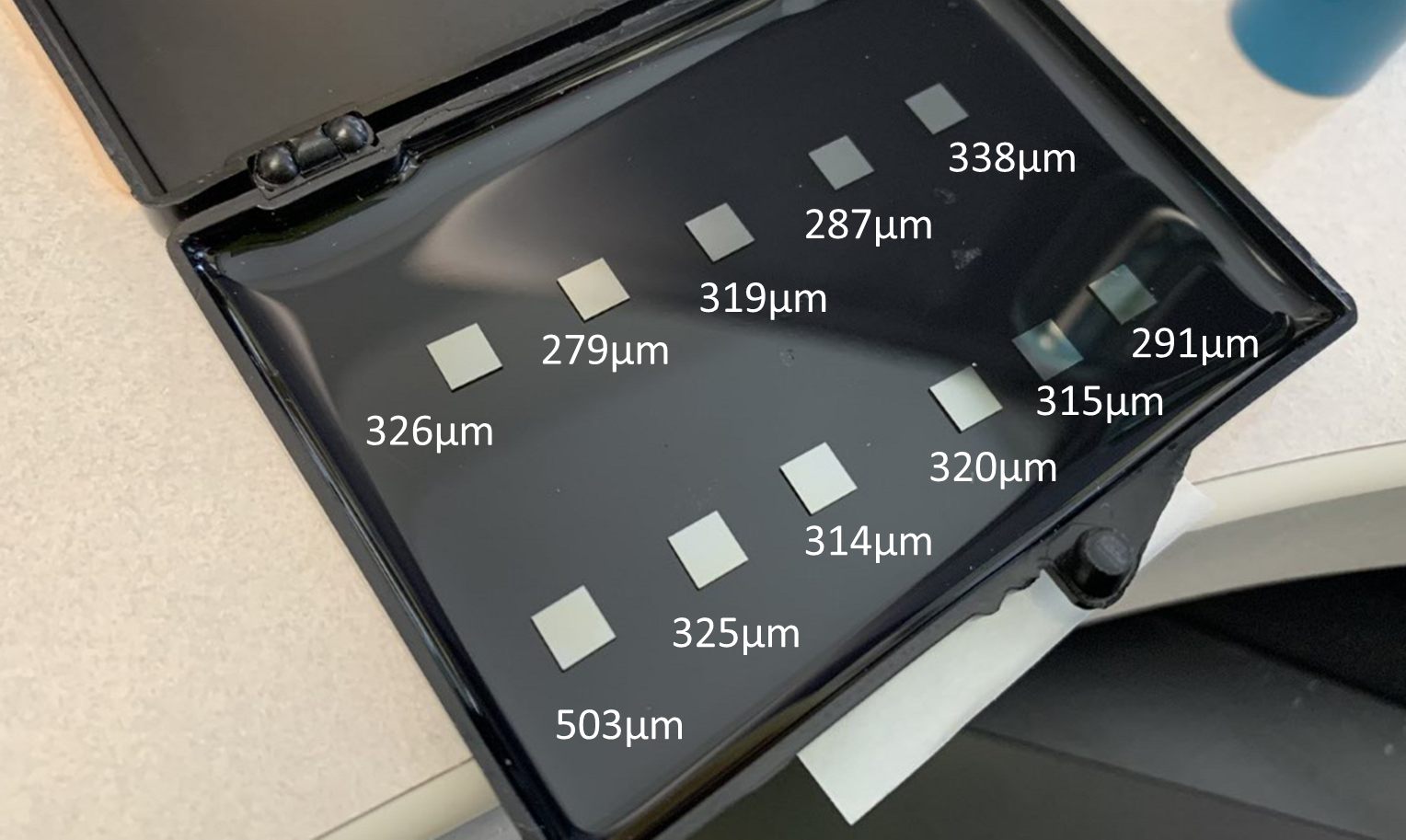High frequency switching is required for many applications including inverters, pulsed power, and generation of electromagnetic waves. Previous photoconductive switches have been based on semiconductors such as Si, GaAs, GaN, or SiC. Diamond is superior to these materials in terms of critical electric field, carrier mobility, and thermal conductivity, making it the best candidate for photoconductive semiconductor material. What follows is a method to build efficient, high power diamond PCSS including selection of wavelength and selection of anode and cathode materials.
Design and construction of a photoconductive switch requires a diamond photoconductor illuminated by light of a certain excitation wavelength.
Characteristics of the LLNL-developed switch are as follows:
- Diamond material doped with substitutional nitrogen to act as a source of electrons.
- Diamond plate can be made very thin to produce thin diamond PCSS
- The device architecture allows maximum light entering the aperture. Double-sided illumination is used to optimize the absorption of UV light in thicker devices. 3D optical structures patterned on the device surface allows for increased power efficiency.
- The top and bottom electrodes are made of ultra-wide bandgap (UWBG) transparent conductors or materials with high reflectivity with a metal ring for soldering connection.
- Transparent conductive layer on diamond to produce a surface that is.
- altered to create an electrically conductive yet optically transparent patterned region
- anti-reflective
- Increased performance at shorter wavelengths due to photon recycling effect
- Designed to increase voltage hold off
Publication:
P. Grivickas, P. Ščajev, N. Kazuchits, S. Lastovskii, L. F. Voss, A. M. Conway, A. Mazanik, O. Korolik, V. Bikbajevas, and V. Grivickas , "Carrier recombination and diffusion in high-purity diamond after electron irradiation and annealing", Appl. Phys. Lett. 117, 242103 (2020) (https://doi.org/10.1063/5.0028363)
Image Caption: Samples of optimized diamond switches
The diamond photoconductive switch has higher efficiency (~20%) and output power (~50 kW) compared to conventional switches. LLNL’s diamond-based photoconductive switch technology has optimized performance with numerous advantages over traditional optical switches, such as:
• Maintains high critical electric field
• Higher breakdown voltage
• Diamond has the best combination of material properties for switches
• High Power Microwave Sources
• High frequency switching
• Pulsed Power physics
Current stage of technology development: TRL 3
LLNL has filed for patent protection on this invention.
US Patent Application No. 20240222541 PHOTOCONDUCTIVE SWITCH WITH DIAMOND published 07/04/2024.


